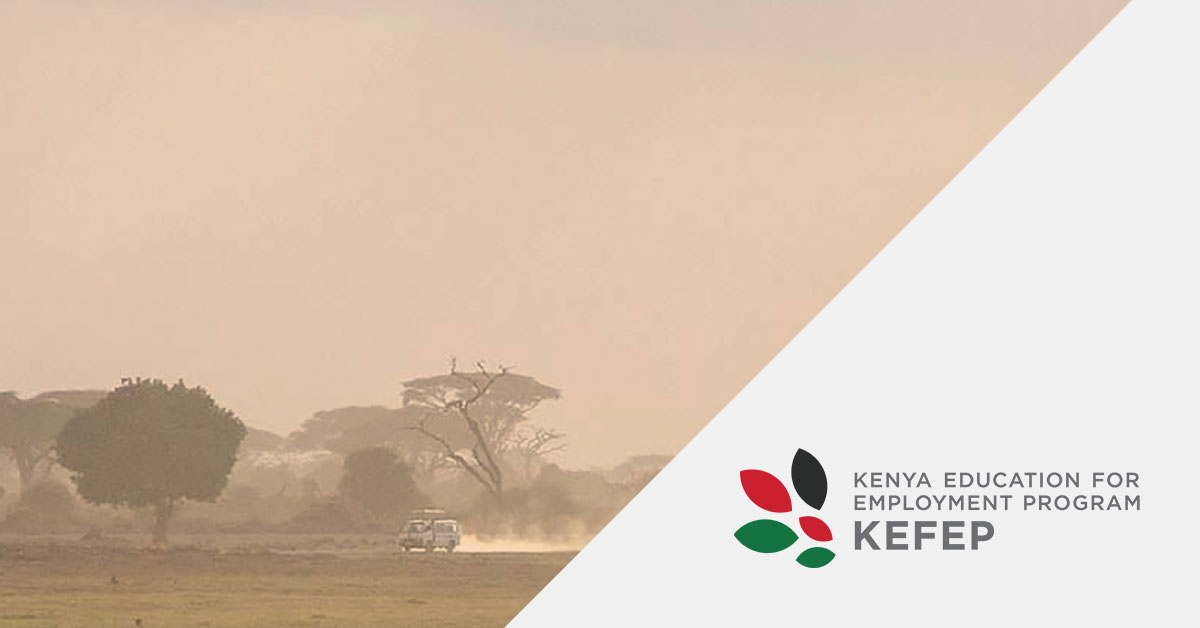Endline Data Collection and cleaning for The Kenya Education for Employment Program (KEFEP)

The Kenya Education for Employment Program (KEFEP), an Education for Employment (EFE) program of Colleges and Institutes Canada (CICan) working in collaboration with the Kenyan Ministry of Education (MOE) will support Kenya in the revitalization of the Technical Vocational Education and Training (TVET) system, which has historically run on low capacity and minimal interest from potential students. KEFEP is a five-year (2016-2021) program funded by Global Affairs Canada. The program will work at the national level with the Directorate for TVET of the MOE and at the institutional level with the ten national polytechnics across Kenya. It will also engage industry stakeholders in the identification of skills gaps, the development of relevant occupational standards and curricula, and the improvement of training facilities to improve the capacity of Kenyan institutions and agencies to implement TVET reform initiatives; increase the effectiveness of partner institutions to deliver industry-responsive skills training; and strengthen the quality of industry responsive skills training programs.
Client
Colleges and Institutes Canada (CICan)
Location
10 Counties: Nairobi, Garissa, Uasin Gishu, Trans Nzoia, Kakamega, Kisumu, Kisii, Nyeri, Meru, Mombasa
Actual services provided for The Kenya Education for Employment Program (KEFEP)
- Recruited competent research assistants to support data collection.
- Conducted the training of research assistants, in Nairobi with support from CICan.
- Managed all aspects of data collection and data cleaning with oversight from CICan
- Adhered to survey procedures and quality standards.
- Prepared preliminary survey reports – on number of respondents reached disaggregated
- Implemented the designed sampling methodology and substitution protocol with the approval of the CICan Team.
- Implemented checks and controls designed in conjunction with the CICan team to ensure the quality of the information being collected during the survey’s implementation and a protocol for re-collecting the data, if necessary, when errors for a questionnaire reach a certain threshold.
- Ensured that contact data are maintained and stored in a manner that is fully confidential so that no external individual or institution can identify any specific individual in the data. Names and contact information were only be made available to the survey team.
- Completed data collection for all planned/substitute sample respondents.
